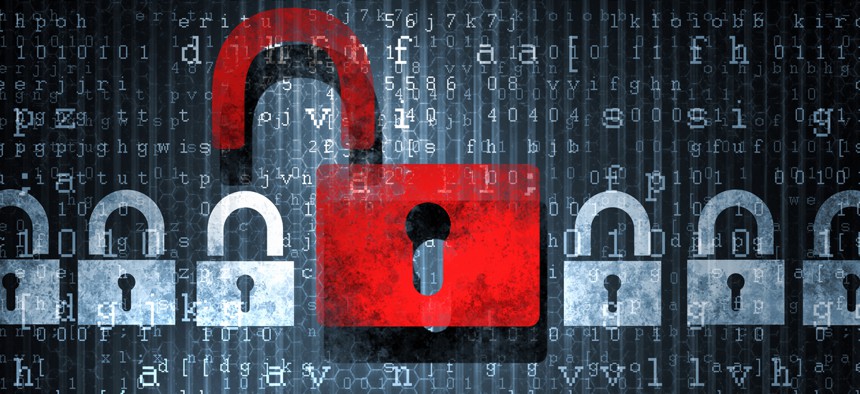Critical Update: A Quantum Leap

Sergey Nivens/Shutterstock.com
Quantum computers will be able to crack our encryption but when?
Quantum computing promises to transform the way humans explore and understand the world, allowing researchers to unlock new insights in massive troves of data, simulate natural processes and make breakthroughs in virtually every scientific field. But the technology will also have significant implications on our digital security and not necessarily for the better.
Today, federal agencies and private companies rely on a variety of different encryption techniques to keep our financial information, online communications and other sensitive data locked away from nefarious actors. These encryption schemes can take even today’s most powerful computers thousands, if not millions of years to break, but in the years ahead quantum computers threaten to crack through our strongest codes in a fraction of the time.
Quantum computing is still in its infancy, so the codes that keep our digital lives secure are safe, at least for today. But once researchers figure out how to overcome some of the trickier aspects of computing with atoms, the field is set to take off, according to Thyaga Nandagopal, the acting deputy assistant director for the directorate of computer and information sciences and engineering at the National Science Foundation.
“We are at a stage right now which many people compare to using vacuum tubes to build a computer,” Nandagopal says in the latest episode of Critical Update. “There’s a lot of work that needs to happen between now and when we can finally say we have a system that's ready to crack the code … but there's a lot of hope that something like that will happen in the next 10 years.”
Cryptographers and cybersecurity experts are already looking for new encryption strategies that quantum computers would struggle to crack. The National Institute of Standards and Technology is hosting a competition to find the most versatile quantum-resistant encryption algorithms, and in January, officials announced they had narrowed the field to 26 candidates.
Once a winning algorithm is announced, Nandagopal expects the government will quickly jump on board.
“Encryption is something the government takes very seriously, and cybersecurity is also on the forefront of all the news right now,” he said. “I think all agencies are keenly attuned to the sensitivities around that, and this is the first priority for them. If the government issues a mandate they have to upgrade to a new standard, that update happens fairly fast.”
Hear more about how quantum computing threatens to disrupt digital security and the barriers scientists need to overcome in the full episode below. Or, download and subscribe to Critical Update in the Apple Podcasts or Google Play.
NEXT STORY: Critical Update: The Hidden Threats of 5G








